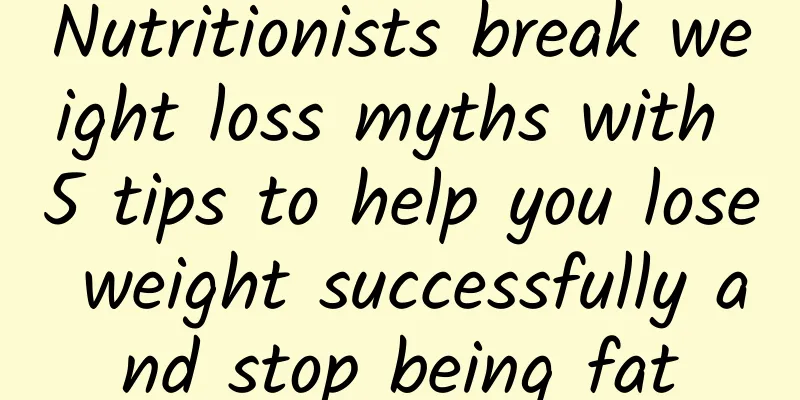Lose 8,000 calories in 3 days to prevent overtraining syndrome

|
Cycling is a good way to burn calories. Travel show host Wei Huaxuan crossed the Central Mountain Range by cycling 400 kilometers, burning more than 8,000 calories in just three days. If converted into 40 minutes of jogging, it is equivalent to jogging 24 times. However, doctors point out that people who have no exercise habits or "weekend athletes" should not try it rashly, as the sudden increase in exercise may lead to "overtraining syndrome" and damage health. Leisure travel program host Wei Huaxuan once participated in the Central Mountain Cycling Challenge, burning more than 8,000 calories in three days and losing more than 1 kilogram. (Photo taken from Wei Huaxuan’s Facebook) The main cause of overtraining syndrome: sudden increase in exercise volume Lin Songkai, a rehabilitation physician at Linxin Hospital and the team doctor for the Olympic team, said that if one has a habit of regular exercise, consuming 1,600 to 2,000 calories a day is still within the acceptable range. However, if one is a "weekend athlete" who only exercises on weekends, the difference in exercise volume can easily cause an impact on the body and produce "overtraining syndrome." Overtraining syndrome often occurs in athletes. In addition to causing athletes' performance to decline or stagnate, they may also experience symptoms such as fatigue, depression, unexplained pain, and the inability to recover from old injuries. Chinese people often have the wrong idea that the more they exercise and the more tired they are, the healthier they will be. This is one of the causes of "overtraining syndrome". Short-term recovery + long-term recovery to repair body functions When the body cannot adapt to the intensity of training and its function declines, the best treatment is rest, which can generally be divided into short-term recovery and long-term recovery. Dr. Lin Songkai pointed out that short-term recovery means that after each exercise, you can apply ice, stretch and massage the sore parts, supplement with appropriate amounts of protein and calories, and most importantly, get enough sleep and avoid staying up late. These actions will help the body "restart" and return to its original state. Olympic team doctor Lin Songkai reminded people that they can massage to relieve muscle soreness after exercise and prevent overtraining syndrome. In addition to short-term recovery, long-term recovery can more effectively reduce the burden on the body. For example, World Cup players undergo 3 to 6 months of intensive training before the game, and must perform short-term and long-term recovery after the game to avoid the sequelae of over-training such as muscle damage and decreased cardiopulmonary function. Long-term recovery can be achieved by arranging a gradual exercise schedule and adjusting the diet after exercise. If you are troubled by stagnant athletic performance, you can seek psychological counseling to help avoid overtraining syndrome. 3 stages of smart hydration to prevent dehydration during summer exercise Dr. Lin Songkai reminds us that the recent hot weather can easily lead to symptoms such as heat stroke, dehydration, and cramps. We need to replenish appropriate amounts of water in three stages: before, during, and after exercise. Before exercise, you can replenish 500cc of pure water. During exercise, replenish 150cc to 200cc of water every half hour. The recommended amount of water to drink after exercise is 500cc. Avoid drinking water only when you are thirsty. The weather is hot in summer, and people exercise under the scorching sun. Don't forget to drink water at any time to prevent dehydration or heat stroke. In addition, if you exercise in an abnormally hot environment, even if you exercise the same amount as usual, your body may not be able to bear the load. When the heart rate is too fast, symptoms such as difficulty breathing, dizziness, and palpitations will occur. You should rest in a cool place as soon as possible. Never hold the mentality of "I can do it normally" and force yourself to finish the exercise. If you ignore the warning signals from your body, it may cause dizziness, cramps at best, or dehydration, heat stroke, shock, or even sudden death in severe cases. |
<<: Don't make these 4 mistakes when exercising: 3 keys to effective exercise
>>: Do 2 sets of movements easily! Sculpted waistline makes you more sexy
Recommend
Will uterine fibroids eat blood and cause anemia?
Uterine fibroids may cause anemia. The main reaso...
Symptoms of uterine fibroids in different locations
The symptoms of uterine fibroids are relatively c...
What are the main hazards of suffering from uterine fibroids?
Among the many types of gynecological diseases, u...
How to prevent cervical erosion
Cervical erosion is one of the most common diseas...
How to check for bacterial vaginosis in men
We know that there are many causes of bacterial v...
Want to lose weight successfully and healthily? Your body tells you these 5 things you must remember
When you are constantly critical of your body sha...
Specific description of the symptoms of cervical erosion
The symptoms of cervical erosion have a lot of im...
What are the dangers of adnexitis?
Once female adnexitis is discovered or detected, ...
Say goodbye to edema! 2 Yoga moves to slim your butt and legs
Supermodel Wang Liya shares some yoga stretching ...
Can stinky tofu contain vitamin B12 to prevent dementia? The devil hides here...
While strolling around the night market, you may ...
What is Ⅱ degree cervical erosion? Medical explanation of Ⅱ degree cervical erosion
Grade II cervical erosion indicates that the area...
What discomfort does pelvic effusion cause?
What discomfort can pelvic effusion cause? Pelvic...
Why does my menstruation never end?
Why does my menstruation never end? Menstruation ...
How to prevent infection of endometrial tuberculosis
Endometrial tuberculosis is a common gynecologica...
Is irregular menstruation a symptom of menstrual irregularity?
With the development of society, the fast pace of...









